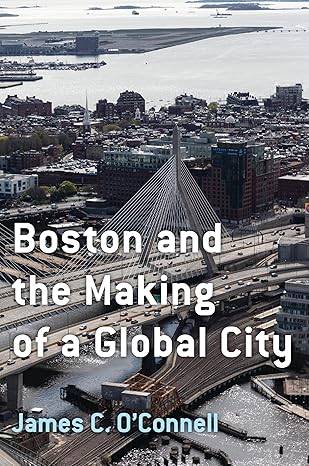KeyNote Submission
This curated collection of published or publishable content authored by LAI members showcases our industry’s best thought leadership. Articles and excerpts share a wealth of knowledge — from industry trends and academic research to expert perspectives.
KeyNotes Post Suggestions:
Content for KeyNotes posts consist of land-economics topics and directly relate to a LAI member, chapter, or a global LAI event.
Chapter meeting synopses are perfect for KeyNotes posts as well as articles written by a LAI member or honoring a member.
Personal or business travel that ties in land economics within images and copy are interesting KeyNotes posts.
Peruse past KeyNotes posts for inspiration on crafting a unique post.
Articles of any length are accepted, though long articles may be best broken into a series. Multi-media material such as ppt, charts, video, links to other material, etc. are often integral to substantiating post content.
Bringing Together
Foresight.
And Insight.
“What Is a ‘Global City'”?
September 3, 2025


James C. O’Connell, FAICP, has written seven books on aspects of New England urban history and planning. He teaches in the City Planning-Urban Affairs Program at Boston University. His career has included planning positions in Boston, Cape Cod, and Western Massachusetts. He is a member of the LAI Boston chapter.
The Land Economics Foundation has provided a publication grant of this independently conducted research study.

With the publication of my book on Boston and the Making of a Global City, the first question LAI-Boston members are asking me is: how do you determine what a “global city” is? I answer by explaining that the term, which has been in use since the 1980s, is a way to identify the urban command-and-control centers of globalization, which has been integrating most of the world into a single capitalist market. These “global cities” are nodes in networks of investment, trade, knowledge exchange, telecommunications, transportation, travel, and migration. The measure of a global city is the extent of the international networks with which it is connected. Global cities are resolutely competitive, as they all are striving to be more prosperous, influential, and attractive.
The great financial centers of New York, London, Paris, and Tokyo, which offer the broadest range of business services, are at the apex of this urban hierarchy. As the economies of China and the rest of East Asia have grown, Beijing, Shanghai, and Seoul have also assumed positions of primacy. In the U.S., Los Angeles is a focal point for entertainment, technology, and shipping, while Chicago remains a leading business, trade, and manufacturing center.
Boston is one of the foremost hubs of technological innovation, higher education, and healthcare, along with San Francisco-Silicon Valley, Seattle, San Diego, Toronto, Paris, Beijing, and Tel Aviv. These knowledge-economy cities are creating new products and services that are driving economic development. They have the best educated workforces and the highest productivity levels. These cities are frequently moderately-sized and, because of their wealth, have a desirable quality of life. Boston’s cutting-edge educational and medical institutions, dynamic entrepreneurs, highly-skilled talent, astute investors, and supportive government and professional organizations have made it a global leader in life sciences, information technology, robotics, 3-D printing, and climate/clean tech.
Oxford Economics (2025) ranked Boston the #8 “global city.” With its tech innovation economy, Boston has achieved a metropolitan GDP of $650 billion (#13 in the world). In recognition of Boston’s intellectual capital and the leading roles played by MIT and Harvard, the World Intellectual Property Organization ranks it #6 in the world for patents and scientific papers. Bloomberg has reported on Boston’s success in attracting venture capital, ranking only behind San Francisco and New York (2021) in the U.S.
Boston has a superior talent base. This is due to 50% of its age 25+ workforce having at least a bachelor’s degree, ranking Boston #4 among the nation’s metro areas. Surprisingly, 43% of adult immigrants in Massachusetts have a bachelor degree. Twenty-five percent of biotech company founders in Massachusetts are foreign-born. Massachusetts has approximately 80,000 international students. It should be emphasized that less-credentialed immigrants also hold necessary jobs, as custodians, landscapers, and workers on construction, home care, nursing care, and restaurants. If it were not for immigrants, who were responsible for 90% of net population growth since 1990, the Massachusetts economy would be weakened by a severe labor shortage.
Like many global cities, Boston is being challenged by political upheaval, environmental degradation, socio-economic inequality, and technological disruptions brought on by artificial intelligence. There is general concern that the policies of the current federal administration have negative consequences for innovation-sector R&D and higher education in Boston.
Boston and the Making of a Global City provides a useful case study for LAI members to analyze the competitive status of their cities. Those interested in evaluating their city’s competitive status versus national and international peers are likely to find that a good starting point is global cities ranking studies published by such entities as the Bookings Institution, A.T. Kearney, Oxford Economics, Arcadis, and JLL Global Research. After using these reports to identify key characteristics of competitive global cities, researchers can delve into researching how their city has participated in the global flows of trade, supply chains, investment, transportation, tourism, telecommunications, and immigration.
KeyNotes are submitted by LAI members. Many submissions reflect the author’s professional opinions and views on relevant issues concerning the organizational mission and purpose of LAI. LAI, as an organization, does not take a position on Keynote submissions, and supports providing an open forum of ideas forwarded for thoughtful consideration. Submissions should not be construed as LAI endorsements.
